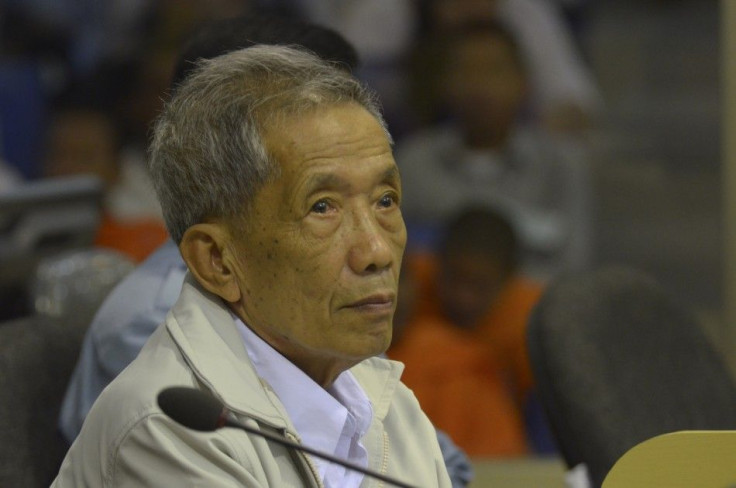Khmer Rouge Trial: Chief Jailer Sentenced to Life in Prison

The former chief jailer of Cambodia’s Khmer Rouge regime had his 35-year sentence extended to life imprisonment after a genocide court backed by the United Nations rejected his appeal.
The defendant, named Duch (born Kaing Guek Eav), was imprisoned in 2010 in connection with his involvement in a prison where thousands of inmates were murdered during the bloody days of the Communist regime of Pol Pot. He was the first prominent Khmer Rouge official to appear before the court and was convicted of having committed crimes against humanity.
The appeal court judge Kong Srim stated: The Supreme Court Chamber decides to impose a sentence of life imprisonment against Kaing Guek Eav. The crimes by Kaing Guek Eav were undoubtedly among the worst in recorded human history. They deserve the highest penalty available.”
Prosecutors praised the life sentence.
We can say that justice has now been served after more than 30 years, Chea Leang said, according to BBC. To us and to the victims, this is a great success.
Duch, now 69 years old, was the commander of the notorious Tuol Sleng prison, just outside the capital Phnom Penh, where at least 15,000 men, women and even children were tortured and executed, having been classified as “enemies of the state.”
Duch’s appeal was based on the premise that he was simply a subordinate officer following orders of high-level Khmer Rouge officials.
Al Jazeera reported that Duch has been in detention since 1999 when he was found in the Cambodian jungle working as a Christian aid worker. He was formally arrested in July 2007.
Hundreds of victims and their families and supporters had gathered at the courthouse to watch the proceedings.
Guy De Launey, a BBC correspondent in Phnom Penh, described the clamor in the courtroom.
“The judges had warned that clapping and cheering would not be tolerated inside the courtroom,” he wrote.
“But people found it hard to contain their emotions. Dozens of young Cambodians had gathered in the outdoor cafe which serves as an overflow area, following proceedings on big screens. They cheered as the judges brought the hearing to a close, sending Duch to prison for the rest of his life.”
De Launey added: “There was also delight on the faces of those who were old enough to have lived through the horrors of the Pol Pot era. One woman told the BBC that she had been too nervous to sleep the night before the hearing. But she thought the life sentence represented justice, and renewed her optimism in the UN-backed process.”
However, De Laumey noted that not all the victims were satisfied by the ruling.
“Theary Seng, who leads the Association of Khmer Rouge Victims, saw the life sentence as an attempt to make Duch the sole scapegoat for all the atrocities committed by Pol Pot's government,” he wrote.
“Others will share her concern that even though the trial of the three most senior surviving leaders of the Khmer Rouge is under way, the frail old men may die before the end of the process.”
Moreover, Clair Duffy, a human rights lawyer who is monitoring the trials, told Al Jazeera, that Duch’s case presents some unusual legal problems.
Duch had been illegally detained by Cambodian military authorities for eight years, so the trial court actually gave him a five-year reduction in his sentence in recognition of that fundamental violation of his rights, and today that was overturned by the majority of the judges on the appeals court,” she said.
Ultimately, this is a court of law that is supposed to be applying international standards. This is not the Cambodian public putting Duch on trial here. These are judges who are not supposed to be swayed by public perception.
During the late 1970s, the brutal Communist regime of Pol Pot killed at least 2-million Cambodians, almost one-third of the population.
The men responsible for this mass genocide are now very old – mostly in their 80s -- and some are still facing trial for their crimes.
Pol Pot died in 1998.
© Copyright IBTimes 2024. All rights reserved.





















